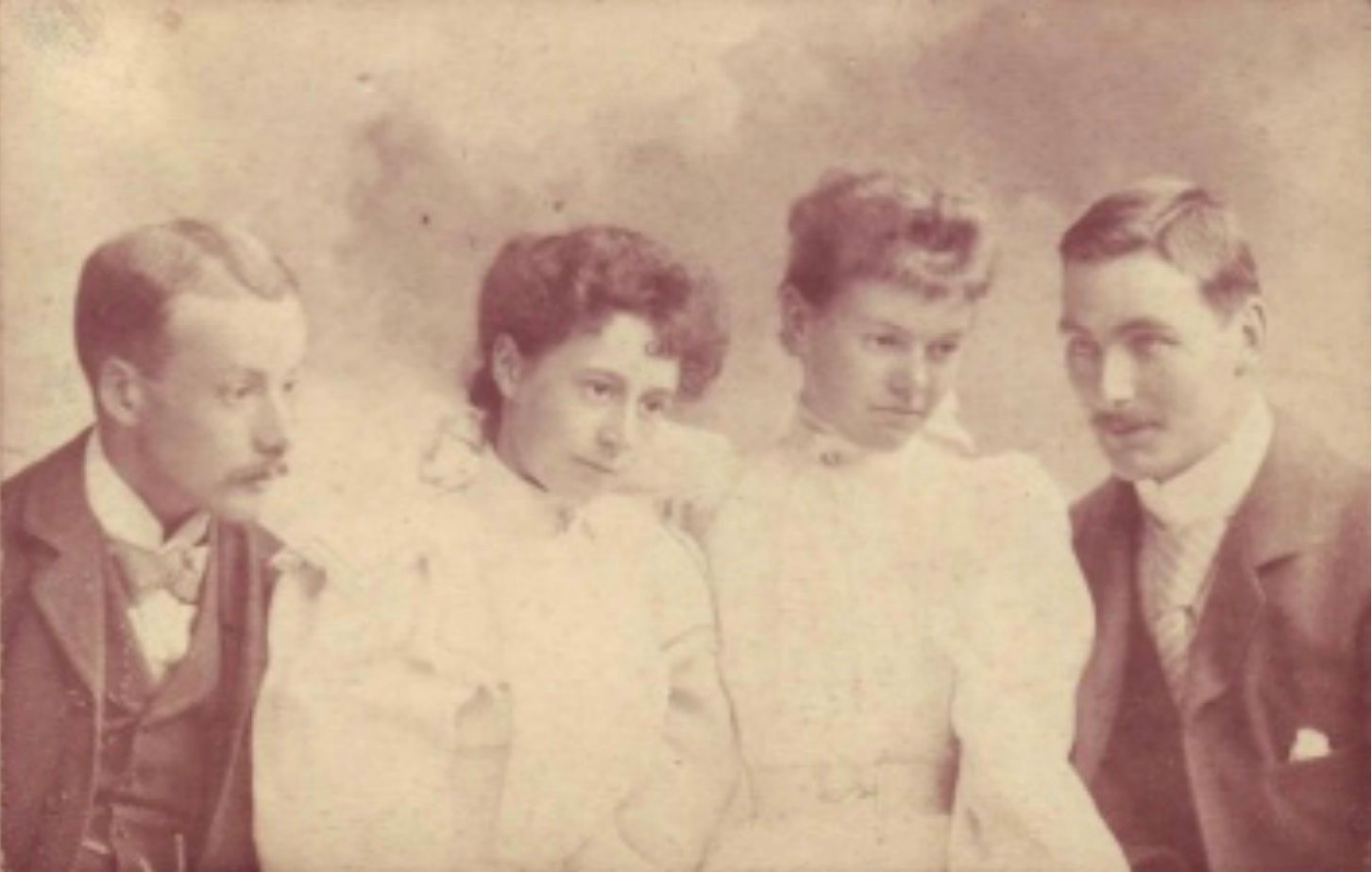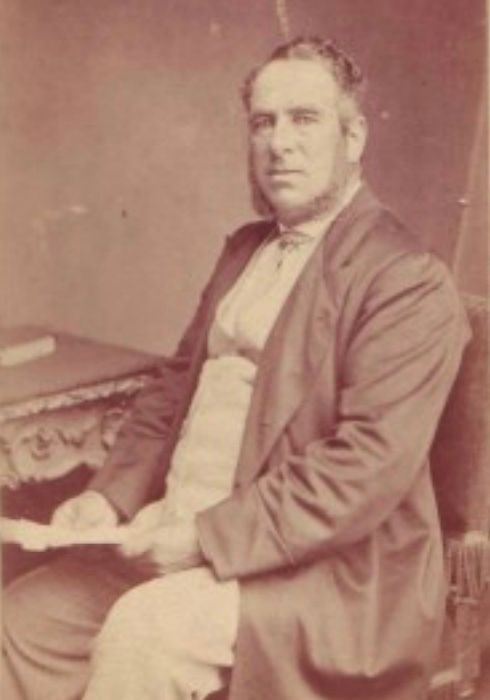Frank Vine Moody
Frank Vine Moody was the youngest son of James and Elizabeth Moody. He was born in 1875 in Basingstoke.
He attended Queen Mary’s School, which was a Grammar School in Basingstoke for boys aged between 11-18. The school was opened in 1556 and closed in 1970. It originated when the Chantry Chapel of the Holy Ghost was re-opened in Basingstoke in 1556. It remained a Chapel until 1870, when a purpose built structure was erected in Worting Road, which is where Frank would have attended.
The school uniform that Frank may have worn was grey trousers, black blazer and white shirt for senior boys, with a grey shirt for junior boys. The school tie was broad diagonal stripes of pale and navy blue.
The school badge was a white dove descending on a black background, with the letters Q.M.S.B. beneath. Up to the 4th form boys wore a peaked black cap with a silver emblem of a dove descending. Games lessons in the summer terms included cricket, lawn tennis, athletics and swimming in the schools unheated open air pool. In the winter, games were rugby football, association football and hockey.

Alfred Paice, Julia Allan, Winnie Smith, Frank Moody
Towards the end of 1895 Frank seems to have been living in Richmond. He eventually joined his eldest brother Arthur in the management of the family business ‘James Moody and Sons’.
According to his obituary, Frank had an even and quiet disposition which had made him a general favourite among friends and in his business relations. His chief recreations were Basingstoke football and golf. He supported the Basingstoke Golf Club until it closed, and then played at Bramshot Golf Club.
When his older brother Arthur went to France in 1918, the management of both the London Street business and the Church Street business (the manager of which had also gone to France) fell entirely on Frank’s shoulders. Three months before the end of World War 1, at the age of 42, Frank was called up and he served for three months on the Flanders Front as a motorcycle dispatch rider in the RAF. He had very little training for what was very exacting work, this combined with anxiety of leaving the business in someone else’s hands and his mother with no home (she had lived for many years over the shop at 17 London Street) along with excessive work after demobilisation took it’s toll on him. According to his obituary, ‘he was never the same afterwards, and though those who knew him hoped for a recovery from the ups and downs of his illness, the trouble proved too much for him and the war claimed another, though late, victim.’

